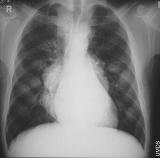How to Treat Respiratory Infection
posted by: Rio Dianne
 Infection of the respiratory tract can be defined as upper or lower respiratory infection. Most people are getting confused on how to differentiate these two contagious diseases. In today’s post though, we’ll be dealing mainly with the upper respiratory infection (URI), however we’ll also touch a little about the lower infection. To start off, a URI refers to the type wherein the upper respiratory areas are affected including the nose, ears, throat, and sinuses. Examples of the condition include flu, common cold, strep throat, and sinus infection.
Infection of the respiratory tract can be defined as upper or lower respiratory infection. Most people are getting confused on how to differentiate these two contagious diseases. In today’s post though, we’ll be dealing mainly with the upper respiratory infection (URI), however we’ll also touch a little about the lower infection. To start off, a URI refers to the type wherein the upper respiratory areas are affected including the nose, ears, throat, and sinuses. Examples of the condition include flu, common cold, strep throat, and sinus infection.
On the other hand, lower respiratory infection (LRI) specifically includes the lungs as well as the bronchi. What causes it is bacterial infection especially staph infection for pneumonia. Bronchitis can be classified as either URI or LRI. Some people are wondering where asthma belongs, though. Well, the answer is that it’s neither of the two since asthma isn’t caused by an infection, but more of stimuli instead. While LRI actually has different approach when it comes to treatment, we’ll tell you how to treat upper respiratory infection, though. How do you go about treating upper respiratory inflammation? Read on.
How to Cure Upper Respiratory Infection
- Among the symptoms of URL are slight fever, muscle and joints pains, and headache. Provide interventions for this by taking some OTC medication like and anti-inflammatory drugs.
- Manage stuffy nose and watery eyes by using nasal decongestants as well as anti-histamine in the case of runny nose. Cough may also be present so cough medication may also be beneficial.
- Try sucking on lozenges or gargling salt water solution to provide relief from strep throat
- Still, one of the best treatments is to drink plenty of fluids.
- Getting some rest is extremely essential to help your system achieve full recovery.
- One home remedy proven effective is steam inhalation over a large bowl of boiling helps to loosen secretions and nasal congestions. A humidifier in your room maybe a great help, too.
These are some steps on how to treat upper respiratory infection. Remember that treatment varies from one person to another which why if your symptom seems to not diminishing; seek medical management through a professional to be able to diagnose any underlying condition. Stay healthy (-_-)
You might also like
|
|
|
|
|




